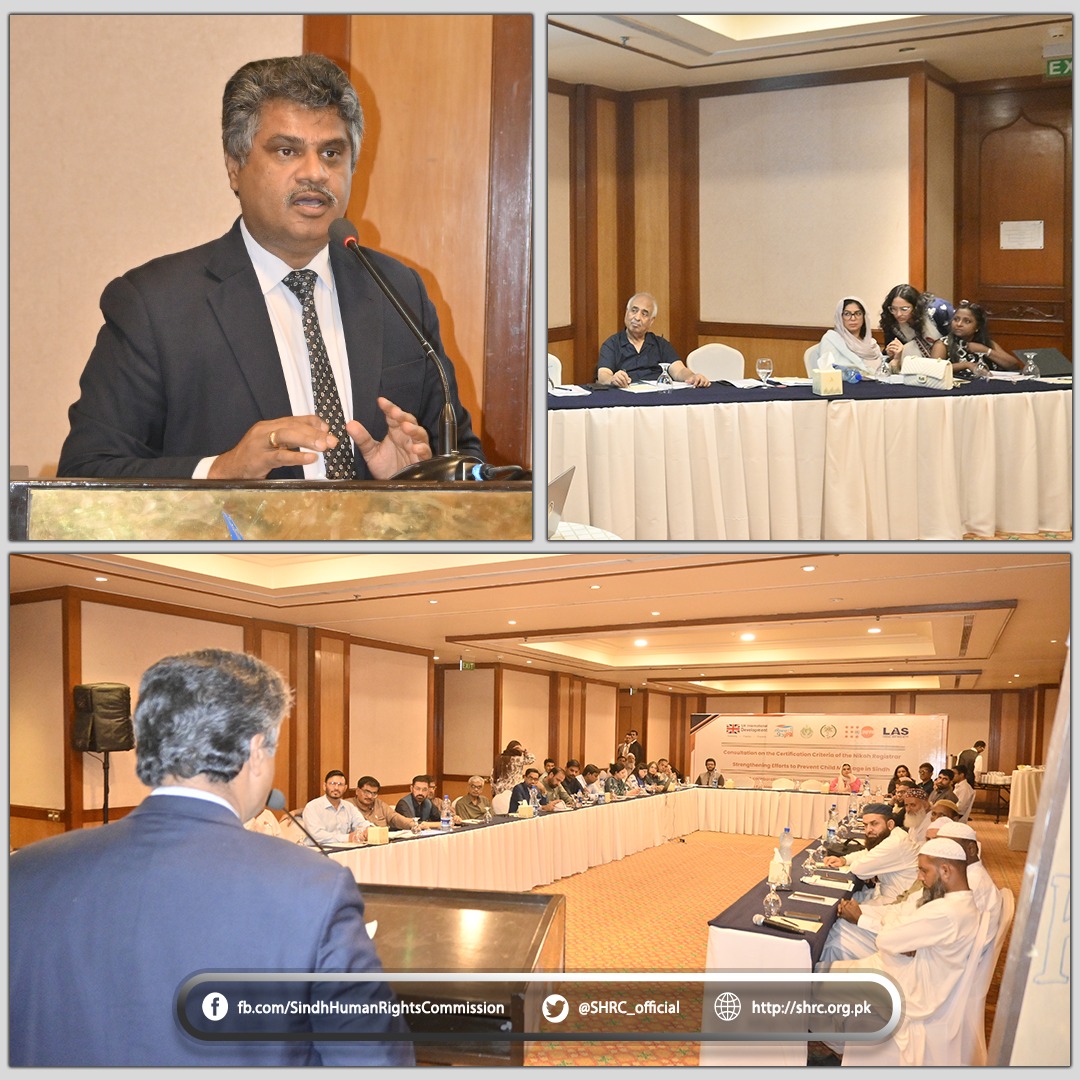


Mr. Iqbal Ahmed Detho, Chairperson of the Sindh Human Rights Commission (SHRC), was a key panelist at the closing ceremony of the project “Role of Youth in Peace Building – Countering and Preventing Terrorism in Pakistan (CPTP)”, organized by HANDS Pakistan in collaboration with UNODC Pakistan, the European Union in Pakistan, and NACTA.
The panel discussion centered on the role of youth in promoting peace, countering extremism, and building a more just, resilient future.
Mr. Detho emphasized:
• The need to embed human rights and civic education into school and college curricula
• The importance of training teachers to promote tolerance and critical thinking
He also presented the SHRC’s Manual on Countering Violent Extremism, urging institutions to mainstream education as the most powerful tool against intolerance.The Sindh Human Rights Commission (SHRC), in partnership with the Legal Aid Society (LAS) and the Sindh Local Government Department, held a multi-stakeholder consultation to discuss strengthening legal pathways for standardizing Nikah Registrar certification criteria across Sindh.
Mr. Iqbal Ahmed Detho, Chairperson SHRC, emphasized the importance of streamlining Nikah registration to protect the rights of women and children, noting that every marriage must fulfill three basic legal conditions:
-Age compliance
-Free and informed consent
-Formal registration
He recommended revising the Nikah Nama to include CNIC numbers for both bride and groom, in line with the Sindh Child Marriage Restraint Act (SCMRA) 2013, to improve verification and accountability.
Ms. Kanwal Fatima, Additional Secretary, Local Government, shared that a summary has been submitted to the Government of Sindh to formally define standard qualifications for Nikah Registrars and to include CNIC fields in the official Nikah Nama format.
From Legal Aid Society, Ms. Durkhana Ijaz and Ms. Arham Sarwar provided a detailed review of relevant marriage laws and implementation gaps—pointing to challenges such as unclear criteria for registrars, lack of training, and weak inter-departmental coordination.